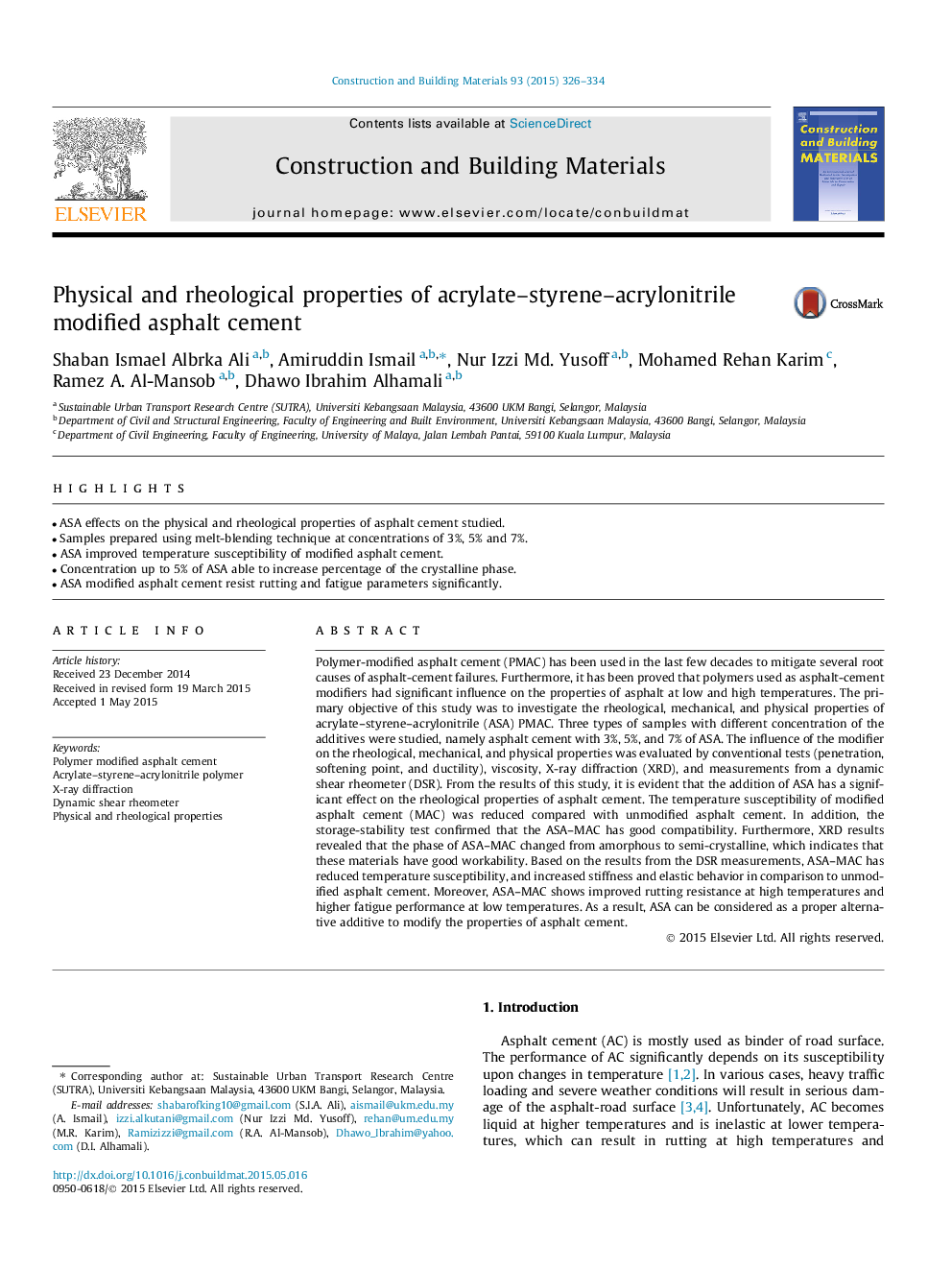| Article ID | Journal | Published Year | Pages | File Type |
|---|---|---|---|---|
| 6720358 | Construction and Building Materials | 2015 | 9 Pages |
Abstract
Polymer-modified asphalt cement (PMAC) has been used in the last few decades to mitigate several root causes of asphalt-cement failures. Furthermore, it has been proved that polymers used as asphalt-cement modifiers had significant influence on the properties of asphalt at low and high temperatures. The primary objective of this study was to investigate the rheological, mechanical, and physical properties of acrylate-styrene-acrylonitrile (ASA) PMAC. Three types of samples with different concentration of the additives were studied, namely asphalt cement with 3%, 5%, and 7% of ASA. The influence of the modifier on the rheological, mechanical, and physical properties was evaluated by conventional tests (penetration, softening point, and ductility), viscosity, X-ray diffraction (XRD), and measurements from a dynamic shear rheometer (DSR). From the results of this study, it is evident that the addition of ASA has a significant effect on the rheological properties of asphalt cement. The temperature susceptibility of modified asphalt cement (MAC) was reduced compared with unmodified asphalt cement. In addition, the storage-stability test confirmed that the ASA-MAC has good compatibility. Furthermore, XRD results revealed that the phase of ASA-MAC changed from amorphous to semi-crystalline, which indicates that these materials have good workability. Based on the results from the DSR measurements, ASA-MAC has reduced temperature susceptibility, and increased stiffness and elastic behavior in comparison to unmodified asphalt cement. Moreover, ASA-MAC shows improved rutting resistance at high temperatures and higher fatigue performance at low temperatures. As a result, ASA can be considered as a proper alternative additive to modify the properties of asphalt cement.
Related Topics
Physical Sciences and Engineering
Engineering
Civil and Structural Engineering
Authors
Shaban Ismael Albrka Ali, Amiruddin Ismail, Nur Izzi Md. Yusoff, Mohamed Rehan Karim, Ramez A. Al-Mansob, Dhawo Ibrahim Alhamali,
